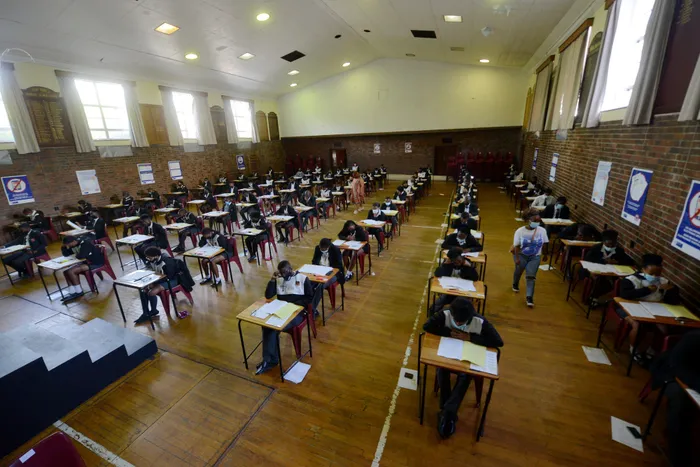End of an era for publication of matric results on public platforms

Pupils write their matric exams. The Department of Basic Education will no longer publish matric exams results on public platforms. Picture: Armand Hough/African News Agency (ANA)
Pretoria - The decision by the Department of Basic Education to no longer publish matric exams results on public platforms has been described by many as the end of an era.
The department cited the Protection of Personal Information Act, which came into effect on July 1 last year, as the reason behind the decision.
The act was put in place for the protection of private information against the unlawful collection, retention, dissemination and use of personal information.
"In order to comply with the provisions of the act, the usual practice of publishing the National Senior Certificate results on public platforms will not occur for 2022," department spokesperson Elijah Mhlanga said.
Learners will still be required to obtain their statement of results from the schools they attended as was the practice in previous years.
Mhlanga said this would ensure that every learner’s personal information with regards to the outcome of their matric certificate would be protected. Matric results are due to be released on January 21.
The exam scripts have been marked and should be at the final stages of capturing, the department has added.
However, the announcement was greeted with mixed feelings.
Karabo Dikgale said waking up in the morning to meet up with other matric pupils on the day of the results was all he had looked forward to.
“It is sad to see the tradition go away, but times do change, I guess. Seeing your name in the newspaper and then rejoicing with other matriculants was something to look forward to.”
Phindile Khumalo said this was not a good decision by the department, as the platform pushed learners to work harder to avoid disappointment on the results day.
“I remember how I, for one, always reminded myself that I could not afford the disappointment of not seeing my name appear in the newspaper.”
The SACP said it had been deeply concerned by the practice as it resulted in negative social consequences and violated section 14 of the Constitution, which talks about privacy. “While the media-generated revenue from sales of newspapers and associated advertising, some learners committed suicide because of the pressures, stress and depression caused by the practice.”
Education activist Hendrick Makeneta said it was a good thing the individual information of learners was being protected. However, he said the problem had already been solved when the department changed from publishing names to publishing exam numbers instead.
Pretoria News